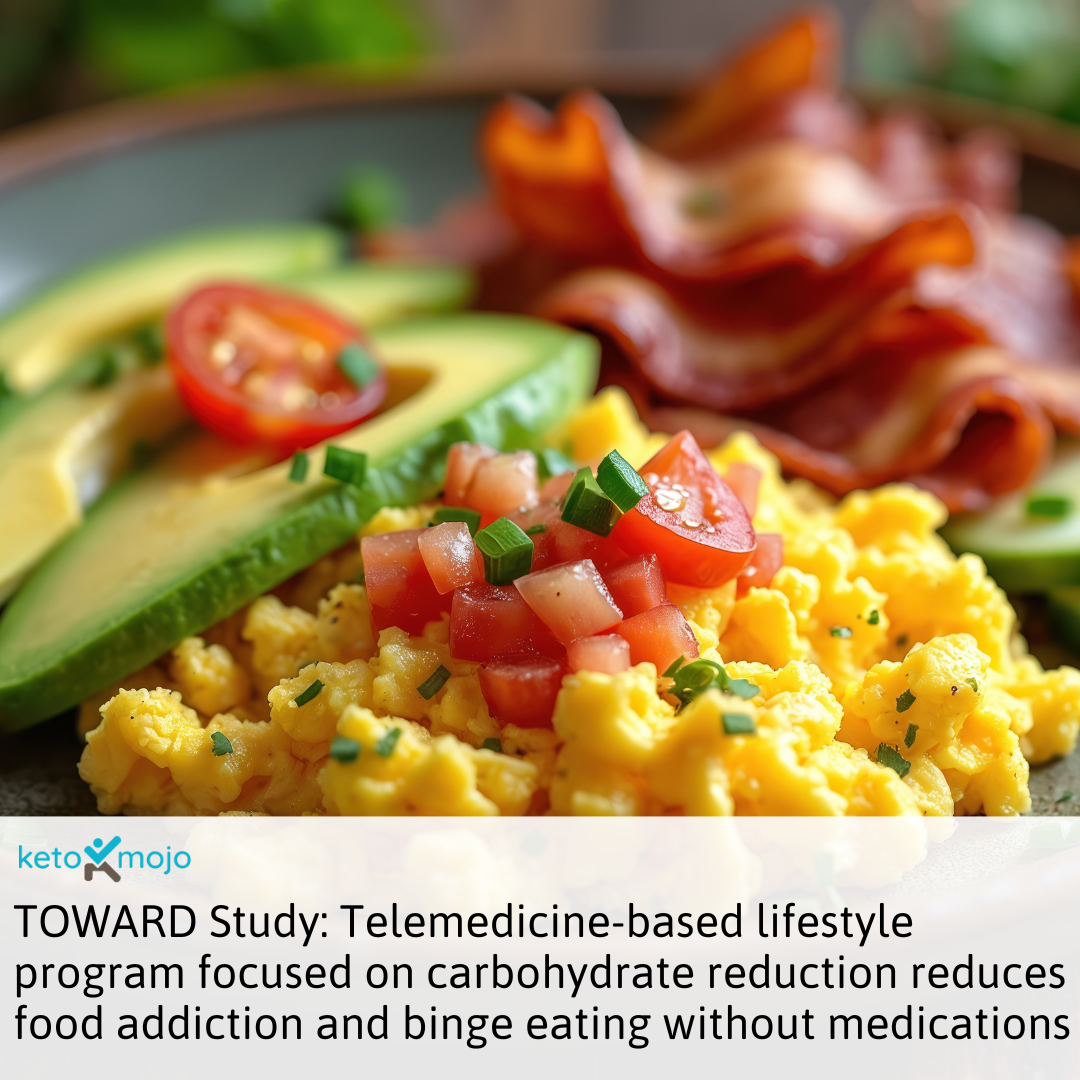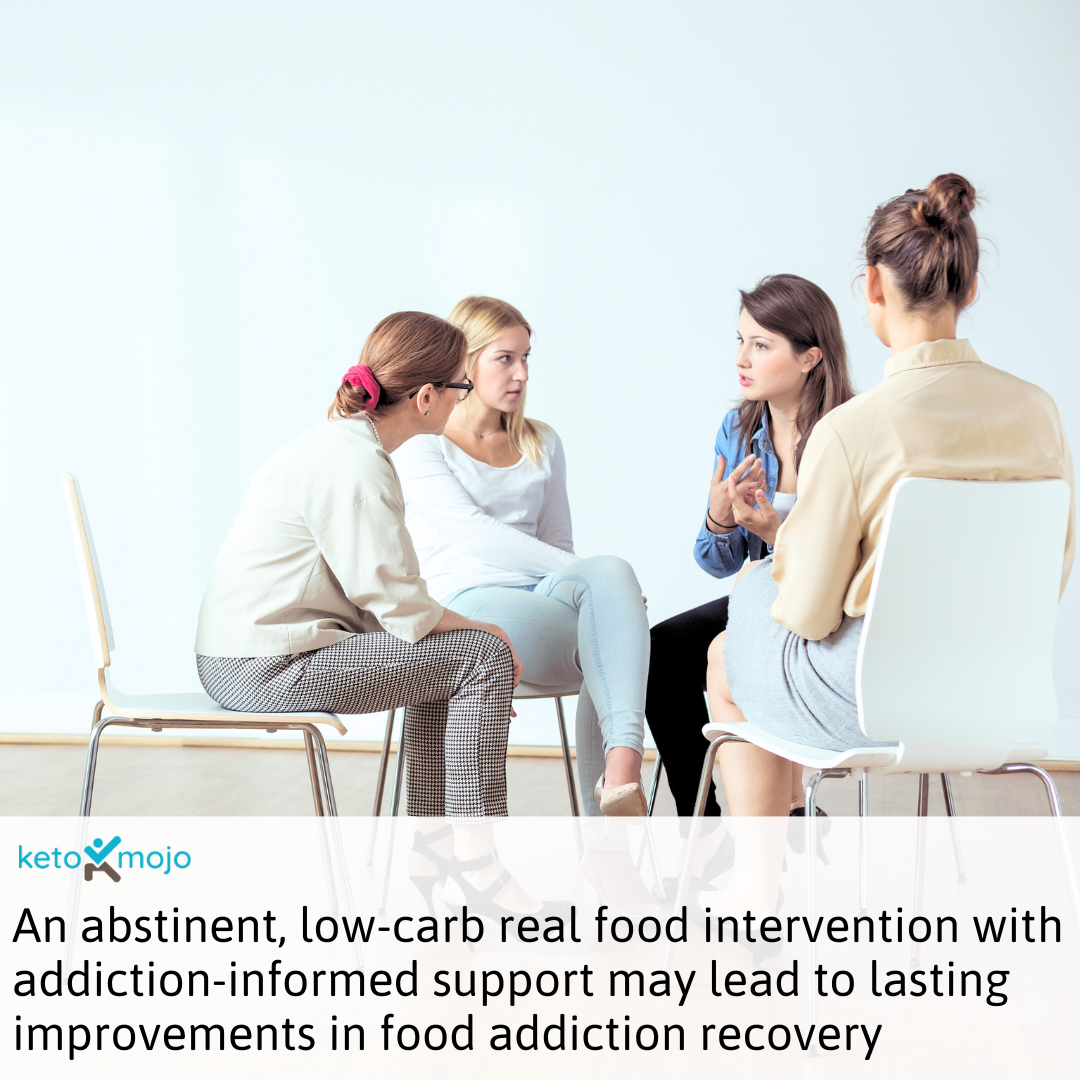General Health, Metabolic Syndrome, Psychiatric Disorders
TOWARD: a metabolic health intervention that improves food addiction and binge eating symptoms

This study evaluated a telemedicine-based metabolic health program designed to reduce food addiction and binge eating symptoms through a structured, multi-component intervention called TOWARD, which stands for Text-based communication, Online clinical interaction, Wellness coaching, Asynchronous education and community support, Real-time biofeedback and remote monitoring, and Dietary modification through therapeutic carbohydrate reduction (TCR).
The program included 44 participants enrolled through an employee wellness program, all of whom had at least one metabolic health condition. Of these, 37 participants completed both baseline and follow-up assessments for food addiction and binge eating symptoms. While the program primarily targeted metabolic outcomes, validated psychometric tools were used to monitor changes in compulsive eating behaviors, including the modified Yale Food Addiction Scale (mYFAS 2.0) and the Binge Eating Scale (BES).
Participants engaged in remote care involving virtual medical visits, individualized coaching, continuous glucose monitoring, eating less than 30 grams of carbohydrates daily, and avoiding processed foods. Calorie counting and meal replacements were not used. Assessments were conducted at baseline and follow-up, with variable timing based on clinical flow.
Key Findings:
- 81.1% of participants (30 out of 37) showed improvement in binge eating symptoms, with a 34.7% average reduction in BES score (from 17.3 to 11.3).
- 45.9% of participants (17 out of 37) showed improvement in food addiction symptoms, with a 40.7% average reduction in mYFAS score (from 2.58 to 1.53).
- Seven participants met criteria for food addiction at baseline, while only two met these criteria at follow-up.
- Symptom improvements occurred independently of weight loss, suggesting specific behavioral and dietary effects.
- Side effects were minimal, with some participants reporting transient constipation or muscle cramps, which resolved with electrolytes.
Delivered through a workplace wellness program, the TOWARD intervention led to reductions in food addiction and binge eating symptoms that were comparable to pharmacotherapy, but without the cost or potential side effects. Its success highlights the potential of a remote, lifestyle-based approach that integrates metabolic and behavioral care.





